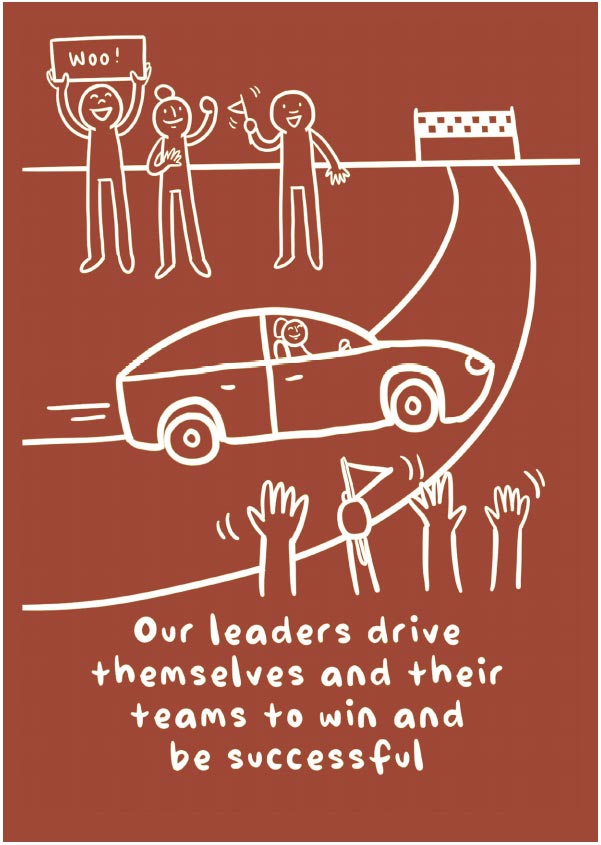Evolving Beyond Traditional Worldviews – The Insights Diagnostic
Aug 25, 2021
In our experience, we have found that many diagnostics and surveys have inbuilt assumptions about one right answer, about static relationships between cause and effect, or that all perspectives are equally informed.

Survey results gather the perceptions and observations of individuals. Any observation an individual makes of others or a culture is informed by their own beliefs, worldviews projections and judgements. This will mean that different individuals have different experiences and perceptions of the same environment. For example, a person with a view that great leadership means setting clear direction might value a highly directive leader, whereas others who like more autonomy might find this direction stifling.
In any intervention which does not account for these challenges, there are likely to be a range of unintended consequences which are counterproductive to enabling more adaptive leadership and culture.
Cultural and engagement diagnostics can address these challenges if they are designed to:
- Enable leaders to build self and organisational awareness as well as critical thinking skills
- Uncover inhibitors and leverage points towards the cultural aspiration
- Develop shared systems awareness and robust perspective sharing to drive innovation
- Deepen awareness of how individuals observe their own experiences in relation to others and the organisational system
- Support transparent and purpose-led conversations with stakeholders inside and outside the organisation.
What qualities of a diagnostic could inform and support this work?
In co-creating the Adaptive Cultures Insights Diagnostic, we set the intention of creating a diagnostic which would take into account some of the key themes described above, and build on the rich research in the last 30 years into organisational and human systems:
- Organisations are complex adaptive systems – many of the intractable problems require a focus on learning and progress (rather than surface level solutions)
- Adults can continue to develop through stages of maturity – though to do so requires understanding and overturning our psychological immune systems
- Organisations also develop through specific stages of evolution – these stages are aligned to the stages of adult development (which intuitively makes sense, given it is humans who have created these organisations.
The Insights Diagnostic has built on these insights and on traditional engagement or culture surveys in the following ways:
From good or bad to continual evolution
Many culture surveys are based on a world view of “good” or “bad” culture, leadership behaviours, or one size fits all. The world view that underpins the Adaptive Cultures Diagnostic is one of whole living systems and the evolutionary potential of human beings and systems. It gathers insights into aspects of an organisation’s culture which support adaptation and evolution and aspects which limit these.
From a traditional diagnostic to inviting dialogic exploration
The Diagnostic has been designed to invite participants to explore what of five possible responses to each question is most like their organisation. This provides participants with alternative examples of worldviews and mindsets, and provides them an experience of what is possible in an organisation. It also provides clues to inhibitors and enables for progress and an opportunity to collectively explore what this means for the organisation.
From focus on the current climate to a view of the emerging future
The Diagnostic provides a developmental pathway that enables practical and contextualised activities to most effectively evolve the culture. This developmental pathway reveals the weights of the past, the current reality and the emerging future.
By transforming inhibitors and engaging with what is emerging in line with organisational aspirations, cultural evolution occurs more rapidly and deeply.
From a focus on parts to a systemic picture
The Insights Diagnostic gives deeper insight into HOW the current culture is being shaped by the organisation’s collective beliefs, systems, ways of working and actions as well as the worldviews that give rise to these actions. It reveals intentions AND execution, surfaces aspirations AND defence mechanisms allowing people to feel the system as a whole.
From internal focus to external influence and impact
The Adaptive Cultures framework starts from how the external world influences and shapes who organisations need to become, and sees the organisation as part of broader systems which impact and can be impacted by the organisation. The capacity for effectively responding to and influencing these wider systems is part of the diagnosis.
From reinforcing a culture of complaint to enabling personal agency and responsibility
Many culture surveys end up as a mechanism for people to “complain” about culture and this is further supported by pre-communication and post-survey activities. The Adaptive Cultures Insights diagnostic and the work we do with clients around pre and post communication and activities support respondents to 1) reflect on culture 2) understand culture more deeply 3) engage people in their responsibility for influencing culture 4) provide people with a sense of what is possible as culture evolves.
From action plans to impactful interventions
Culture survey results often create a list of action items for leaders and HR managers to execute. The Adaptive Cultures Insights Diagnostic helps people in the organisation to recognise and prioritise cultural interventions that are likely to generate the greatest positive ripple towards evolutionary potential across the entire system.
From a survey of opinions to a robust diagnostic
As we created the Insights Diagnostic, we had a long discussion about whether to call it a survey or a diagnostic. We settled on diagnostic as we believe the Adaptive Cultures Insights Diagnostic can be used much like an integral health practitioner assessing the health and wellbeing of a patient. While symptoms might emerge in various areas, it is important to understand the whole system and interactions between different parts of the system in order to understand how to enable greater health.
Interested to explore further? You might be interested in our webinar, ‘Beyond Engagement Surveys’ with Dr Alex Stol, Director – Adaptive Evaluation and Andrew Brown, Co-Founder – Adaptive Cultures. Building on the foundational work from traditional engagement and culture surveys, the webinar discusses how we can build on and move beyond current Employee Engagement thinking and focus on measuring the powerful drivers of change inside and outside the organisation. Considering adaptive variables such as team dynamics, cross-functional relationships, mindsets and eco-system changes provides deeper and more useful insight into engagement, performance, and culture and ultimately helps our leaders to make better decisions. Download the webinar slides and watch the recording here.
Our Adaptive Cultures Community
Our Global Community is an enriching space for culture practitioners to share, learn from, explore and develop emerging practices in support of their clients developing needs. On our community platform we share methods and tools, ask questions, conduct developmental conversations and learn together.
Read the Adaptive
Organisations Whitepaper
Download our Adaptive Organisations Whitepaper and learn how to evolve through change and complexity. To receive a copy, please fill in your details below and a copy will be emailed to you.


